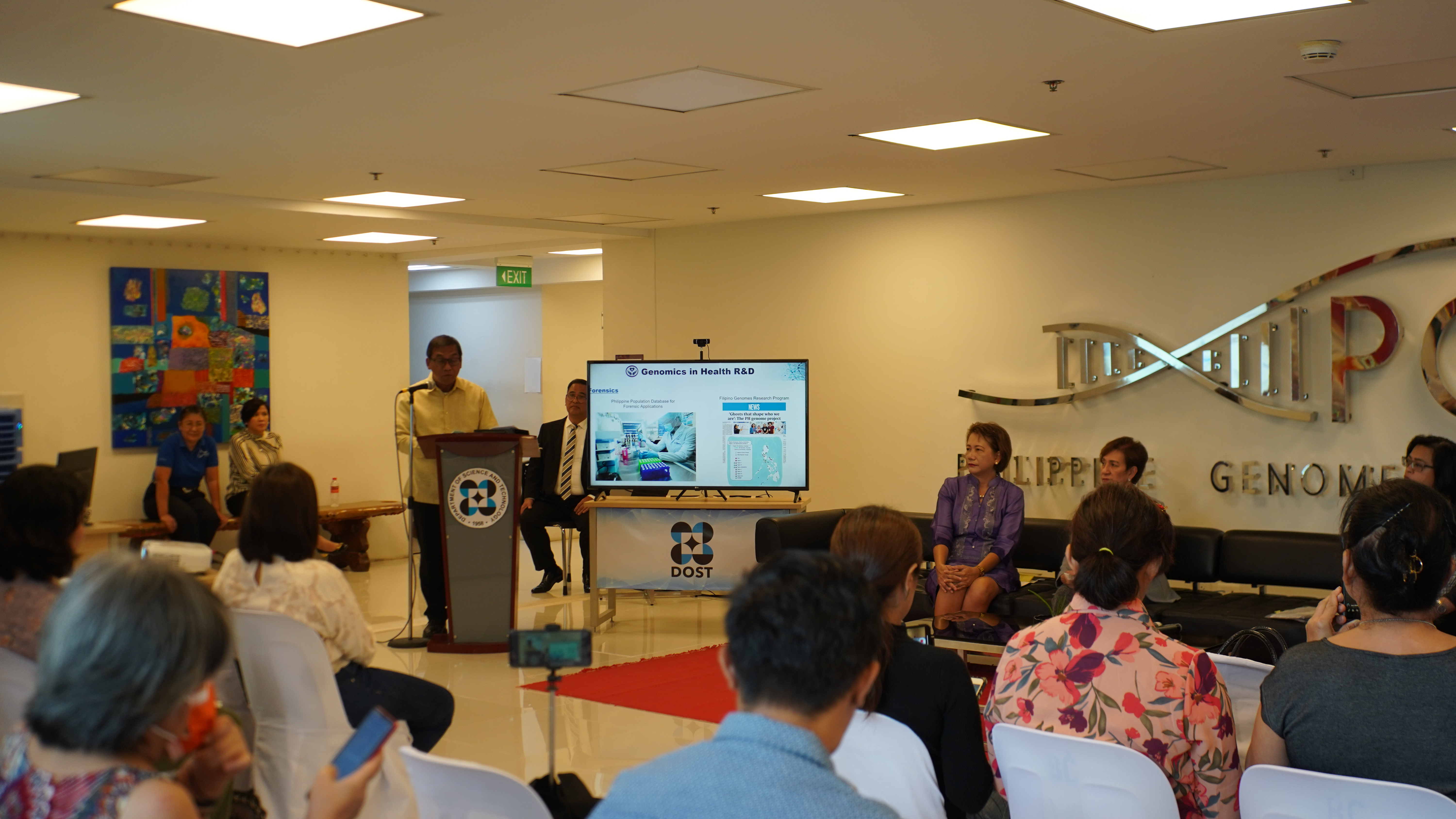NEWS AND UPDATES
DOST lauded by international expert in its PH genomics program

New breeding and disease detection studies, forensic applications revealed to the public
On Friday, April 14, 2023, the Department of Science and Technology (DOST) was lauded by United States Embassy Science and Technology Fellow and National Science Foundation Program Director Dr. Sally O’Connor for effectively translating “basic research into useful products” and the creation of successful startups related to genomics technologies.
The report of Dr. O’Connor highlighted that “investments in genomics research also found success in battling the spread of SARS CoV2 through public surveillance of outbreaks, tracking of the spread of specific variants, and influencing policy to prevent further spread of the virus.” This is in reference to the swift response of DOST in rolling out programs and projects related to COVID-19 detection, tracking and management technologies.
Sustaining its momentum, the DOST introduced a new study on a disease that exclusively affects people of Filipino ancestry. Called X-linked dystonia-parkinsonism (XDP) or lubag, it is a debilitatingly severe, inheritable neurodegenerative disease affecting males with maternal ancestry tracing back to the Panay region of the Philippines. It is a progressive disease that usually affects males from the age of 35 to 45 years of age. The DOST, through its partners from the UP-National Institutes of Health and the UP-Philippine Genome Center, is working to characterize the prevalence of the causative gene for XDP; this will provide a better understanding of the burden of disease in the Philippines and help decision makers to determine where investments in health care should be targeted for this uniquely Filipino disease.
Aside from this, the DOST also supported the expansion of genomics applications to forensics through the “Philippine Population Database Utilizing DNA Fragment Analysis, Capillary Sequencing, and Next Generation Sequencing for Forensic Applications” project. The project was subsequently followed by the Filipino Genomes Research Program (FGRP), an ongoing program which focuses on the history, evolution, origins, and applications of Filipino genomes. This also addresses the use of DNA to resolve child sexual abuse cases. Both studies are being conducted by the DNA Analysis Laboratory of the Natural Sciences Research Institute (NSRI) in collaboration with the Program on Biodiversity, Ethnicity, and Forensics of the PGC.
In agriculture, DOST in partnership with the Philippine Carabao Center provided strategic science-based interventions to address low productivity of swine through the development of the DNA marker aided selection (MAS) technology. DNA-marker selection technology has higher selection efficiency and offers a great opportunity to hasten genetic improvement (in terms of improving productivity, production efficiency and meat quality, and elimination of genetic defects) in swine as compared to the traditional method of selection.
DOST also showcased the exhibits of spinoff companies created due to successful R&D programs like the Manila Health Tek Covid-19 Test Kit, Andali Rapid Test Kit for ASF, practical applications of genomics on criminal investigations (sexual assault kit) and disease forecasting (DiWa app), and new breakthroughs or technology on genomics.
According to DOST Secretary Renato U. Solidum, Jr., “Investing in R&D is critical for the Philippines’ future.” He mentioned that the DOST Genomics Program is an excellent example of how investing in R&D can lead to significant advancements in various fields, creating new products and business opportunities and employing additional staff, resulting in income-generating partnerships with private institutions. He also acknowledged that by investing in programs like this, the Philippines is creating a more resilient and sustainable society, driving innovation, economic growth, and improving the quality of life for its citizens.”
“The DOST Genomics Program’s impact spans diverse sectors, including human health, agriculture, forestry, and marine resources. Its contributions have been indispensable in the fight against a health crisis,” said DOST Undersecretary Leah J. Buendia. “R&D is critical to our ability in addressing the challenges of today and the unknowns of tomorrow,. she added.”
_____________________________
From DOST Central Office




